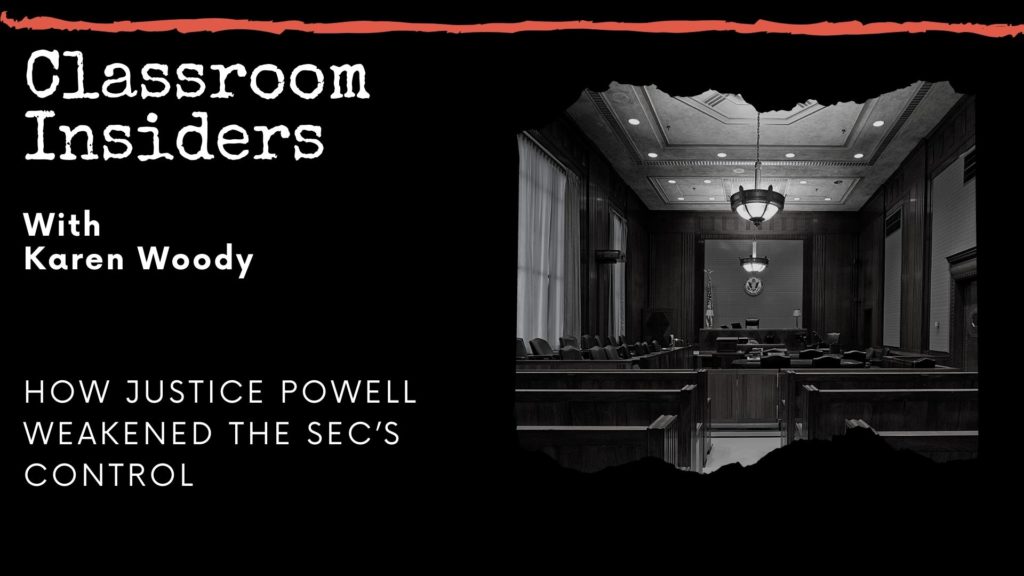
Lidia Kurganova is a 2L at Washington and Lee, and a staff writer on Law Review. She plans to work at Weil, Gotshal and Manges this summer in their New York office, and hopes to specialize in either corporate or technology, or an intersection of the two. In this episode of Classroom Insiders, Lidia discusses how Justice Powell gradually loosened the SEC’s hold on insider trading regulation.
Insider trading was regulated by states up until the 1960’s, when President Kennedy appointed Chairman William Cary of Columbia Law, who wanted the SEC to have broad regulatory powers. Chairman Cary provided a new federal basis for broad enforcement powers of insider trading, which was then adopted by the Second Circuit in the Texas Gulf Sulphur case and birthed the disclose-or-abstain rule. This decision would stand for the next decade as the preeminent insider trading rule, until Chiarella and Justice Powell.
Justice Powell chipped away at the SEC’s regulatory overreach case by case, starting with Chiarella v. SEC where he introduced the fiduciary relationship element to the disclose-or-abstain rule, and then Dirks v. SEC where he is credited for adding a personal benefit element to the tipper-tippee rule. The majority opinion written by Justice Powell established a personal benefit test, which requires courts to determine whether an insider tipper personally benefits indirectly or directly from disclosure. Three examples of personal benefits are: pecuniary gain, reputation gain, and a presumption of benefit due to close friend or family member relationship.
Resources
Karen Woody on LinkedIn


